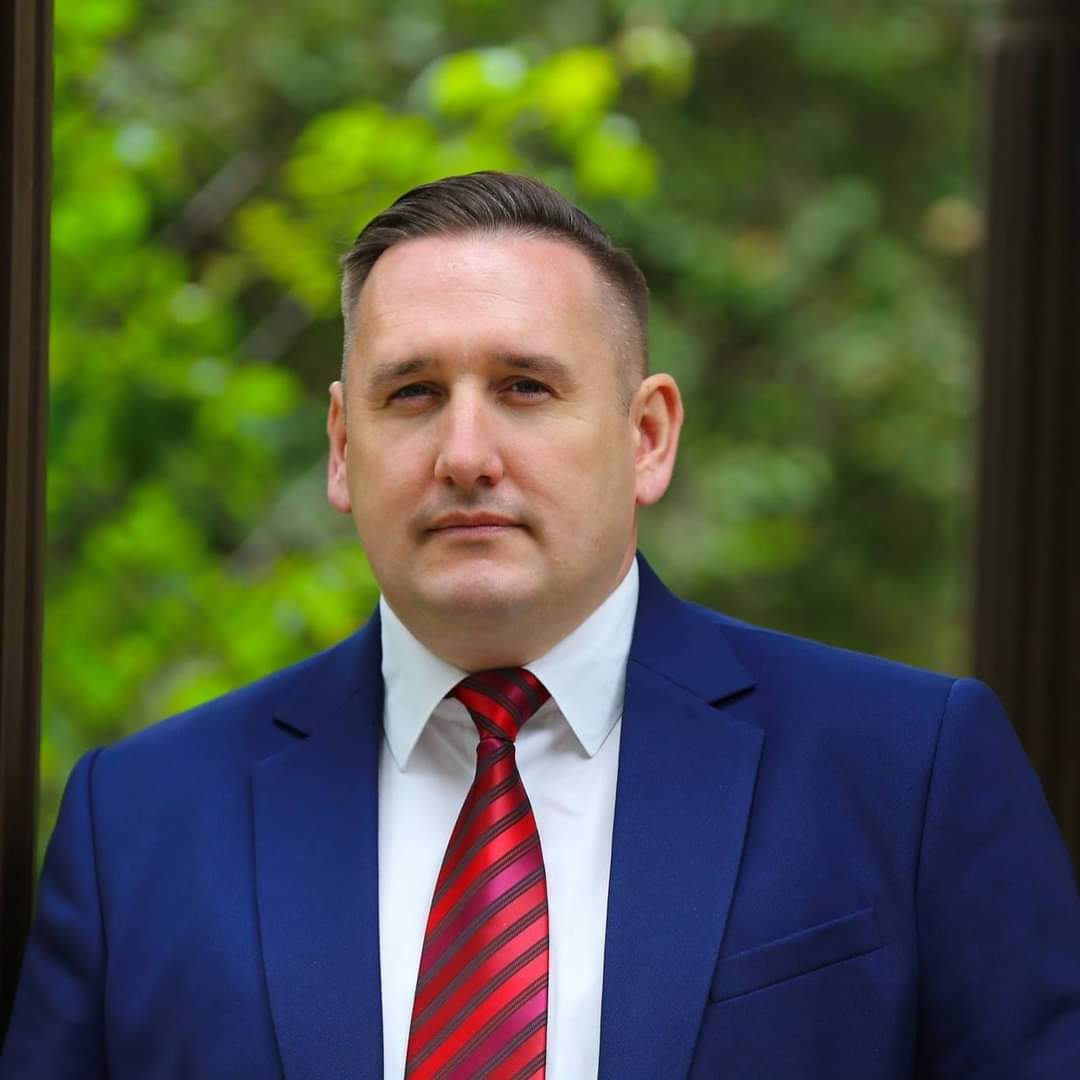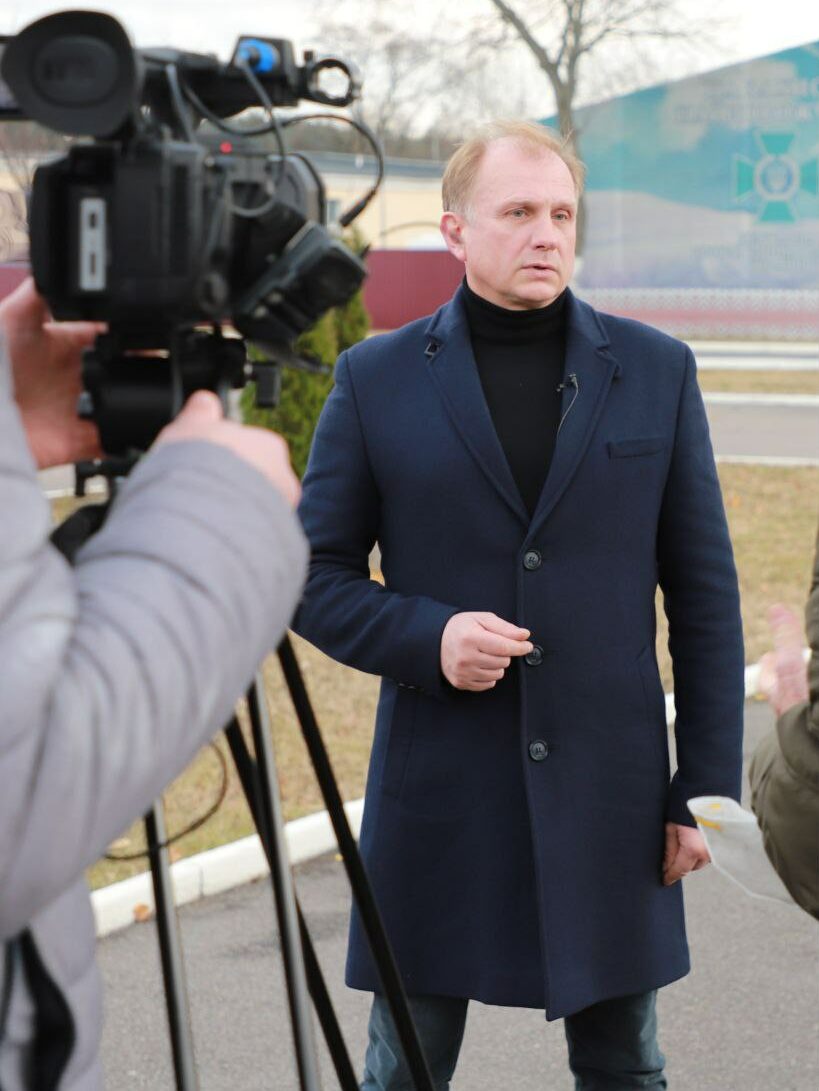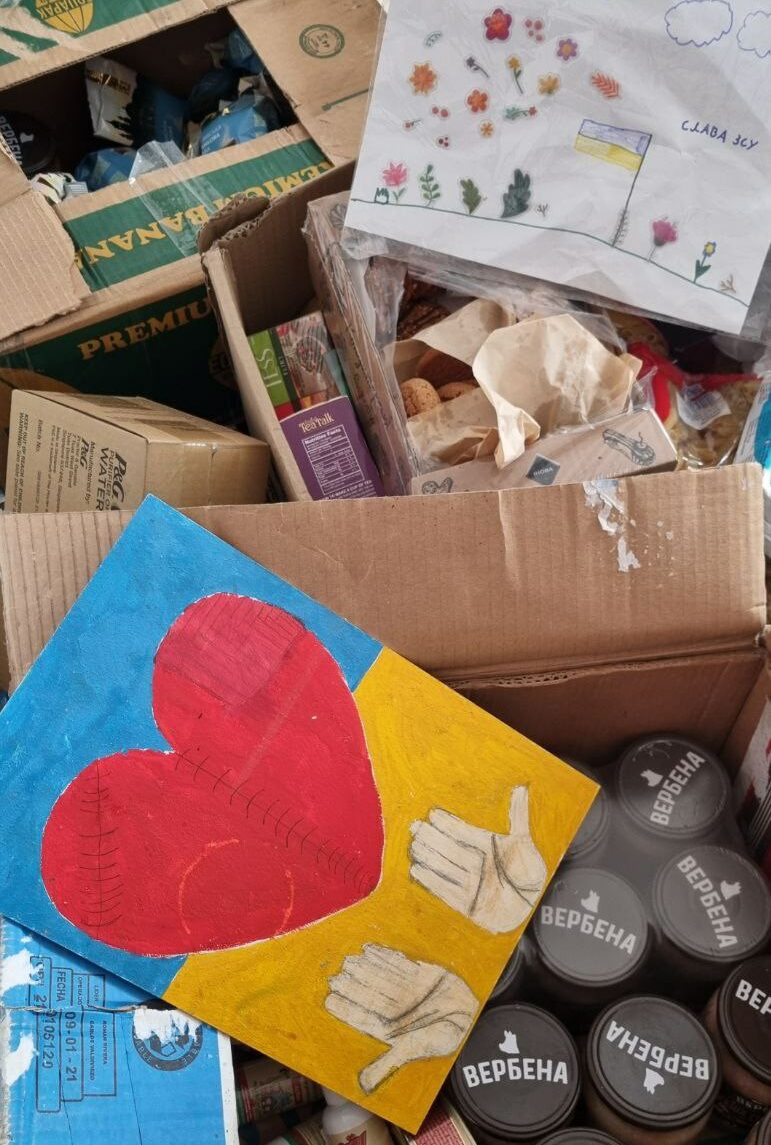
Rubryka tells the stories of two soldiers and employees of BGV Group Management investment company. We asked them how they got caught up in the war, what stories of war they wanted to capture, and how their company supported them.
Roman Smetanyuk: "They thought that they would capture us, and we would meet them with bread and salt and say: "Oh, come into the house, take the toilet"

"I knew that I wouldn't be able to get home like I always did. And I understood that it was necessary to pack and leave. I collected everything in the refrigerator; I thought that if I had to walk from Kyiv to my village, it would be a week, and I need food for that time," Roman Smetanyuk recalls the first days of the full-scale war.
Until February 2022, Roman lived and worked in Kyiv. He was a project manager in the BGV group of companies. On the way to the office, he was caught by the first russian rocket fired over the capital.
"I felt an explosive wave. Then I saw Boryspil on fire somewhere far. Then I went online and discovered that the russians were attacking the airport, radar stations… When I got to the office, I began to follow certain instructions in case of such events. For two days, my colleagues and I were busy with just that. And on the 26th, I bought a bus ticket to Kharkiv."
On the third day of the war, it was almost impossible to refuel the car. Public transport did not work. And the streets of Kyiv were empty. In some places, there were explosions and shootings. Already near the bus station, Roman found out that his bus had been canceled. But he still came to the station and got on the bus to Kramatorsk, in the Donetsk region, east of Ukraine. The road turned out to be difficult.
"We left at noon; Kyiv was already half empty. Everyone was heading to Lviv, but no one was moving to Kharkiv. We calmly went, and not far from Pyryatin, the Poltava region, russia's helicopter — took off in front of my eyes. Ukrainian military column was coming, and this helicopter started shooting our guys."
The bus stopped, and the passengers ran out and started pulling the terribly burned soldiers out. In 7-10 minutes, the ambulance arrived; they loaded the soldiers inside and rushed on the bus.
When Roman got home to the Kharkiv region, neighboring villages were already burning, and the area was constantly being shelled. Roman says that almost all the village policemen were sent to Kharkiv to protect the city. So together with other locals, they organized their own defense forces — prepared barricades, patrolled the village, and helped the military.
Their task was to help the 93rd Kholodnyi Yar brigade to adjust fire. As partisans, they observed russia's positions, calculated their equipment, and passed this information on to the Ukrainian military. At that time, the enemy positions were 10-15 kilometers away.
Roman and fellow soldiers constantly adjusted the fire, helping the Ukrainian military destroy about three hundred russians. Those who survived ran away.
"They thought they would capture us, and we would meet them with bread and salt and say: "Oh, come into the house, take the toilet." But it didn't turn out as expected," Roman recalls.

The first two weeks after the beginning of russia's full-scale offensive, the village was protected and completely taken care of by local units. Roman shares how they decided with fellow villagers to supply food and medicine to the village and escorted the cargo so it would not be stolen. But later, all these tasks again passed into the hands of the authorities. Roman's brother-in-law offered him and other activists to join the army. That's how Roman Smetanyuk became a chief sergeant, defending the state ever since.
The defender says that because with BGV, he previously had to visit strategic objects when it came to investments, most of the places he protects now and where he performs combat missions are already well known to him.

When BGV researches the investment projects that the company is considering, the specialists always visit the premises. When Roman went on missions already during the war, he knew all these places they had to defend. He knew all the hiding places, all the possible roads and secret spots, and that helped a lot.
Oleh Zontov: "A car with loudspeakers drove around our positions, and a funeral march sounded every night"

Oleh Zontov, the head of the communications department of BGV Group Management, immediately warned his colleagues at a work meeting on February 24 that he would go to Slovyansk the very next morning to the military commissariat he was assigned to.
"Before the invasion, there was an inner feeling that something would break through. I am from the Donetsk region, and my roots are there. I also experienced 2014 there. And that's why I knew that it would eventually break through… This time I was preparing. Because in 2014, when the first invasion began, I had to leave Donetsk with my family in a hurry. And now we were already prepared," says Oleh.
Before that, Oleh had already participated in the anti-terrorist operation in 2014, an area of implementing measures to ensure national security and defense and repel and deter armed aggression of the russian federation in the Donetsk and Luhansk regions, so he says that the question of "what to do" was not relevant. He came to Slovyansk, rejected the offer to join the Territorial Defense, and ended up in the airborne assault troops.

Zontov's military career began in Izyum, in the Kharkiv region, east of Ukraine. His unit was the last to leave the city, blowing up the bridges behind them.
"Near Sviatohirsk, we held a corner of the forest, about 3 kilometers by 4. We were shelled from three sides 24/7. And there was only one path, the exit to Bohorodychne, which was also not the best option. The supply was very limited. And the fact that from 2 a.m. to 4 a.m., the russians brought out the so-called loudspeakers only added to the discomfort," says Zontov.
The man recalls that a car with loudspeakers drove around that forest, playing a funeral march, followed by a list of units that were allegedly destroyed by the russians, a list of surnames, and the repeated recording: "Servicemen of the Armed Forces of Ukraine, surrender, we guarantee you food and clothing, your families will be safe, surrender your Nazi commanders and switch to our side." This happened every night for two months.
"It made you go crazy. I wanted to shoot with all types of weapons. We are surrounded, and they are 800 meters or a kilometer away on the forest's edge. We see them but can't get them because there are no heavy weapons, and long-range artillery will not work. And so this car drove around like that. First, they played a funeral march, then changed the record and played a baby cry for about 20-30 minutes. These are very traumatic memories. Even now, when there is an opportunity to sleep normally, I still wake up at two o'clock," recalls the soldier.
Telling about himself, Oleh Zontov laughs: he says that he is a simple soldier with three higher education diplomas in communications, law, and psychology. He shares that psychological knowledge greatly helps in war, allowing one to communicate with people in a proper way.

Oleh shares that he experienced a deja vu because he used to work as a psychologist in a children's camp for several years in Sviatohirsk.
The unit has constantly been fighting since the end of February 2022 when they entered Izyum. And this is constant tension, constant combat stress, and all kinds of cases that happen to the fighters, from panic attacks to suicidal thoughts. That is why the practical skills of a psychologist come in handy. Plus, Oleh has a degree in communications, and competent contact in the army is essential — because everyone is very different.
Even during his service in the ATO, Oleh Zontov began to save various postcards, drawings, and amulets, which children handed over to soldiers through volunteers. This collection is also being replenished now.

The military officer says that now he and the entire unit are very much supported by help from all over Ukraine. Every goodie and every children's drawing is several times more important in the war. Speaking about support, Zontov also mentions that his colleagues always text him and wish him all the best. Family and friends also support him, but receiving support from colleagues is no less heart-warming.
"In addition, our company is cool in general. There is a significant point here — I know where I will return. Because the company works, it is powerful and stable," Oleh says.
Unfortunately, the fighter concludes that many soldiers who fight with him have nowhere to return to work.
"What is keeping the state afloat"
As of February 24, 2023, the anniversary of the full-scale war, 70 employees of BGV Group Management are defending Ukraine. The stories of these soldiers, like thousands of others, are stories of courage and responsibility. But these cases are also stories of stable support from the employer. During this year, the Charitable Fund, the BGV Group of Companies, and its owner Hennadii Butkevych allocated:
- 27 million hryvnias for the purchase and delivery of vehicles for the armed forces and territorial defense, including armored vehicles (a total of 26 vehicles);
- 48 million hryvnias for various protective and optical goods for the armed forces;
- 42 million hryvnias for drones for the armed forces.
For Oleh Zontov's and Roman Smetanyuk's units, the company purchased a quadcopter, thermal imagers and binoculars, a car trailer, radio communication equipment, diesel generators, elements of winter clothing, tactical gloves, shoes, sleeping bags, etc.
"At the very beginning, we were like adult children in this war. We were armed, but all the weapons were from the 90s and sometimes the 70s. Technologically, we were losing. First, thanks to my colleagues, our unit received a drone, then military walkie-talkies, thermal imagers… It is essential that business supports the state and us on the front lines," concludes Roman Smetanyuk.






